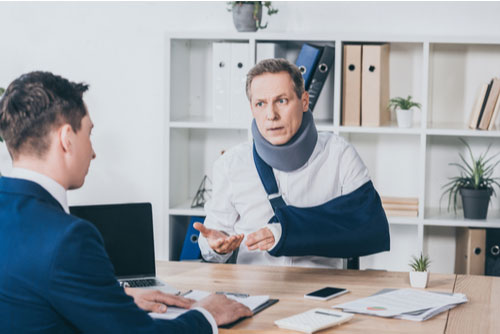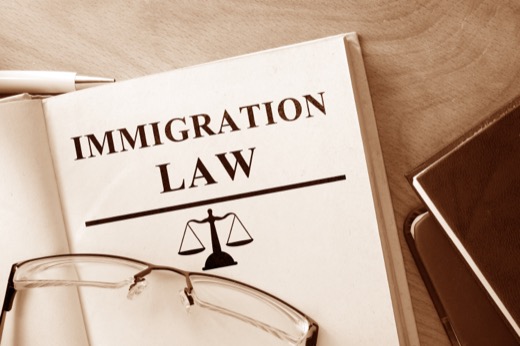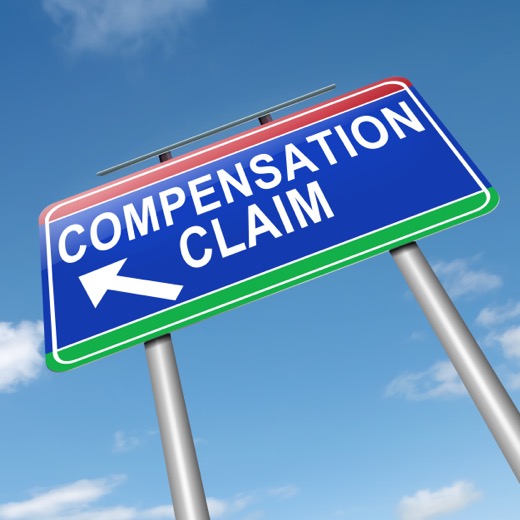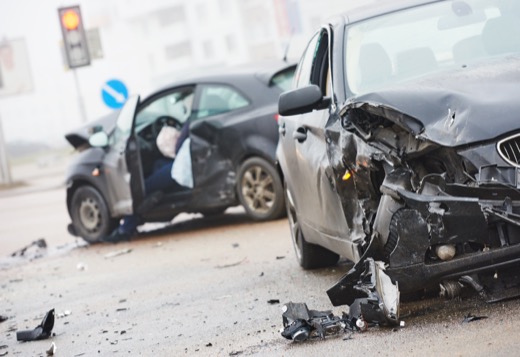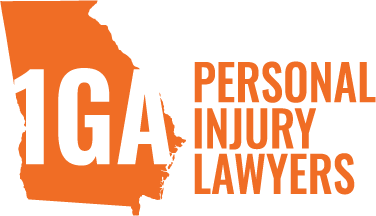Understanding the Risks of Motorcycle Crashes in Atlanta
Motorcycle crashes are unfortunately common in Atlanta, a city known for its heavy traffic and challenging road conditions. Whether it’s the impact of uneven surfaces, hazardous weather, or the dangers posed by distracted or aggressive drivers, motorcyclists face a higher risk of serious accidents on the road. These accidents can lead to severe injuries, including spinal cord injuries, traumatic brain injuries, and broken bones. When these accidents occur, having experienced legal support is crucial.
As an Atlanta car accident lawyer, it’s essential to understand the unique challenges motorcycle operators face when navigating the city’s busy streets. In this blog post, we’ll dive into the impact of road conditions on motorcycle crashes in Atlanta, explore the contributing factors to accidents, and discuss how motorcycle accident victims can recover damages with the help of experienced personal injury attorneys. Whether you’re a seasoned motorcyclist or a new rider, understanding the risks and how to protect yourself can make all the difference when it comes to your safety on the road.
How Road Conditions Contribute to Motorcycle Crashes in Atlanta
Motorcycle accidents in Atlanta are often heavily influenced by the city’s road conditions. With frequent traffic congestion, narrow lanes, and a variety of hazardous conditions, motorcyclists face a higher risk of crashes compared to other road users. Road conditions can be especially dangerous for motorcycle operators, making it crucial to understand how these contributing factors impact motorcycle crashes and accidents in Atlanta. Below are the main road hazards that increase the risk of serious injuries for motorcycle riders:
Uneven Surfaces and Potholes
Uneven surfaces and potholes are significant contributors to motorcycle accidents in Atlanta. Roads with cracks, potholes, and debris are especially dangerous for motorcycle operators, as they lack the stability of four-wheel vehicles. A pothole or uneven surface can cause a motorcycle to lose traction, leading to a loss of control, especially at higher speeds. These conditions are more hazardous for motorcycle riders than for other road users due to the increased likelihood of serious injuries like broken bones, head trauma, and spinal cord injuries.
Road maintenance is a common concern, and poorly maintained roads contribute to many motorcycle crashes in Atlanta. Such hazardous conditions often lead to single vehicle crashes, where motorcycle operators fall or collide with other objects. These accidents can be severe, resulting in significant injuries for motorcycle accident victims, some of which may require long-term medical care and rehabilitation.
Narrow Lanes and Frequent Lane Changes
Another critical factor that contributes to motorcycle crashes is the presence of narrow lanes and the frequency of lane changes in Atlanta. The heavy traffic in Atlanta can make it challenging for motorcycle operators to navigate through crowded highways or streets, especially during peak hours. The risk of accidents increases when other drivers fail to notice motorcycles during frequent lane changes, or when motorcycle operators attempt lane splitting in heavy traffic.
Motorcycle crashes caused by aggressive driving behaviors, such as speeding or tailgating, often result from these narrow lanes and the high rate of lane changes in Atlanta. Motorcycle operators involved in accidents due to these conditions may suffer severe injuries, including head trauma or traumatic brain injuries. The risk of collision is elevated when other vehicles don’t respect motorcycles’ space, and drivers fail to follow traffic laws.
Weather Conditions and Road Hazards
Inclement weather is another major factor that affects road safety in Atlanta. Wet or slippery conditions, such as those caused by rain, fog, or ice, can make roads especially hazardous for motorcycle riders. Reduced traction from wet roads increases the likelihood of motorcycle accidents, leading to physical injuries such as broken bones, head trauma, or spinal cord injuries. Motorcycles are less stable in these conditions, and even experienced riders are at a higher risk of skidding or losing control.
In addition to poor road conditions, reduced visibility during fog or rain can make it difficult for motorcyclists to identify hazards on the road, such as debris, potholes, or sudden stops. Similarly, other drivers may not notice motorcycle operators in low visibility conditions, increasing the chances of a serious crash. The combination of impaired visibility and slippery roads makes riding a motorcycle through inclement weather especially dangerous.
Road Maintenance Issues
Inadequate road maintenance is a significant contributor to motorcycle accidents in Atlanta. When roads are not properly maintained, motorcycle riders face greater risks of encountering dangerous road conditions, such as gravel, construction debris, or unmarked hazards. Poorly maintained roadways can also lead to sudden changes in the road layout, such as abrupt turns or poorly marked detours. These unexpected changes can cause motorcycle operators to crash due to a lack of time to react.
Additionally, roadwork zones often present challenges, with loose gravel and uneven surfaces posing a significant risk to motorcyclists. These conditions are especially dangerous when combined with aggressive driving behaviors or impaired driving from other road users, leading to an increased risk of motorcycle crashes.
Accident Prevention Strategies for Motorcycle Riders in Atlanta
To reduce the risk of motorcycle crashes and ensure safety on Atlanta’s roads, motorcycle operators should follow these accident prevention strategies:
- Regular Maintenance and Tire Inspections: Check tire pressure and ensure proper tire wear to maintain traction and stability. Regularly inspect brakes, suspension, and lights to avoid mechanical failure during a ride. A well-maintained motorcycle is less likely to experience issues that could lead to accidents.
- Wear Protective Gear: Always wear a helmet to prevent head trauma and traumatic brain injuries. Use jackets, gloves, and knee pads to absorb impact and reduce the severity of injuries. Ensure all protective gear meets safety standards and fits properly for maximum protection.
- Adjust Riding Behavior to Road Conditions: Slow down when navigating uneven surfaces, potholes, or slippery roads. Maintain a safe distance from other vehicles, especially in narrow lanes and during peak hours. Avoid lane splitting in heavy traffic to reduce the chances of a crash.
- Stay Alert and Avoid Aggressive Drivers: Watch out for distracted driving and aggressive driving behaviors like speeding and tailgating. Stay at a safe distance from other drivers and avoid confrontations in heavy traffic. Be proactive and defensive—other drivers may not see you or respect your space.
- Take Motorcycle Safety Courses: Consider taking a motorcycle safety course to enhance riding skills. Learn how to handle dangerous situations and react effectively to road hazards. These courses help riders of all levels improve their confidence and ability to navigate safely.
- Be Prepared for Weather Conditions: Avoid riding in inclement weather when possible. If necessary, adjust your speed and following distance. Slow down on wet roads, during fog, or when ice is present to maintain control. Motorcycle operators should be cautious of slippery roads and reduced visibility in adverse weather.
- Increase Visibility: Wear brightly colored or reflective protective gear to make yourself more visible to other drivers. Always use your headlights during the day, even in good weather, to increase visibility. Avoid staying in blind spots and ensure your bike’s signals are visible and working properly.
By adopting these accident prevention strategies, motorcycle riders can significantly reduce their risk of serious accidents and improve safety on the roads of Atlanta. Regular maintenance, wearing the right gear, adjusting to road conditions, and staying alert can help avoid motorcycle crashes caused by both road hazards and other drivers.
The Role of Traffic Laws in Motorcycle Safety
In Atlanta, as well as throughout the state of Georgia, traffic laws play a crucial role in promoting motorcycle safety and reducing the risks of motorcycle crashes. These laws are designed to protect motorcycle operators, passengers, and other road users by ensuring safe, orderly traffic flow and reducing the potential for accidents. Below are some of the key traffic laws that contribute to the safety of motorcycle riders in Atlanta:
Helmet Laws
In Georgia, wearing a helmet is mandatory for all motorcycle operators and passengers under state law. Helmets are one of the most effective safety measures to reduce the risk of traumatic brain injuries and head trauma in the event of an accident. Studies have shown that motorcycle riders who wear helmets are significantly less likely to suffer fatal injuries compared to those who do not wear them. Adhering to helmet laws not only protects the rider’s life but also helps ensure compliance with Georgia law.
Speed Limits
Speed limits are designed to ensure safe travel on roads, especially in areas with high traffic or limited visibility. For motorcycle riders, adhering to speed limits is essential to maintaining control of the bike, particularly on uneven surfaces, during heavy traffic, or in inclement weather. Speeding reduces reaction time and increases the likelihood of serious accidents. Riders should always respect posted speed limits and adjust their speed to accommodate road conditions, weather, and traffic patterns.
Lane Splitting
Lane splitting refers to the practice of riding a motorcycle between lanes of slow-moving or stopped traffic. While motorcycle operators may be tempted to engage in lane splitting to navigate through heavy traffic more easily, it is illegal in Georgia. Engaging in this behavior can lead to dangerous collisions, as other drivers may not expect a motorcycle to be in between lanes, and sudden lane changes by vehicles can result in serious accidents. Motorcycle riders should always stay within their lane and avoid lane splitting, as it not only violates traffic laws but also significantly increases the risk of motorcycle crashes.
Motorcycle Safety Course Requirement
For new motorcycle riders, completing a motorcycle safety course is often required to obtain a motorcycle endorsement on their driver’s license. These courses teach essential skills for safe operation, including effective braking, cornering, and handling adverse road conditions. By completing these courses, riders are better prepared to deal with hazardous conditions and traffic safety challenges, thus reducing the likelihood of being involved in an accident.
Obeying Traffic Signals and Signs
Just like other vehicles on the road, motorcycle operators must obey traffic signals, stop signs, and other traffic laws. Disregarding traffic signals, such as running a red light or not yielding at a stop sign, is a significant cause of motorcycle accidents. Failure to yield to other vehicles or pedestrians can result in serious or fatal crashes, particularly at intersections. Motorcycle riders should always exercise patience and caution when navigating intersections, ensuring that they follow safe driving practices at all times.
Lane Positioning and Right of Way
Proper lane positioning is vital for motorcycle riders to avoid collisions with other vehicles. Riders should position themselves in the lane where they are most visible to other drivers, especially in heavy traffic. In narrow lanes or high-traffic areas, it’s important to avoid riding in a vehicle’s blind spot and to stay alert for frequent lane changes by other drivers. Additionally, understanding and respecting the right of way is essential for preventing motorcycle accidents. Riders should always yield to pedestrians and other vehicles as dictated by traffic laws to avoid dangerous situations.
Impaired Driving Laws
Impaired driving laws are critical to reducing the number of motorcycle crashes caused by drunk driving or drug impairment. In Georgia, it is illegal to operate any vehicle, including a motorcycle, under the influence of alcohol or drugs. Riding under the influence significantly impairs judgment, reaction times, and coordination, making motorcycle operators more likely to be involved in serious accidents. Riders should always ensure they are sober before getting on their bikes and should never operate a motorcycle while under the influence of any substances.
Traffic Laws and Motorcycle Safety Education
In addition to specific laws related to motorcycles, education about traffic laws plays a crucial role in promoting safety. Motorcycle safety courses provide riders with knowledge about road safety, traffic laws, and how to operate a motorcycle in various conditions. This education helps motorcycle riders better understand the risks they face and how to navigate Atlanta’s highways and city streets safely.
By following traffic laws and adhering to safe driving practices, motorcycle operators in Atlanta can greatly reduce their risk of being involved in motorcycle accidents. These laws are designed not only to protect riders but also to ensure that all road users follow consistent rules for a safer, more predictable driving environment. Understanding and obeying traffic laws is a key part of maintaining road safety and preventing serious accidents on Atlanta’s roads.
How Road Design and Infrastructure Affect Motorcycle Safety
In Atlanta, as in many other cities, road design and infrastructure play a critical role in the safety of motorcycle riders. While traffic laws and safe driving practices are essential, the very structure of roads, intersections, and highways can either enhance or undermine motorcycle safety. Certain road features and poorly maintained infrastructure can create additional hazards that motorcycle operators must navigate, increasing the likelihood of motorcycle crashes and serious injuries.
Narrow Lanes and Limited Space
One of the most significant challenges for motorcycle operators in Atlanta is narrow lanes. Many of the city’s older roads, especially in urban areas, have narrow lanes that make it difficult for motorcycle riders to maneuver safely between other vehicles. In these situations, motorcycle riders may be at greater risk of being sideswiped or squeezed by larger vehicles, leading to serious accidents. Narrow lanes also make it harder for motorcycle riders to avoid sudden stops or swerving, especially in heavy traffic or during peak hours.
Sharp Turns and Curves
Certain areas in Atlanta, particularly on major highways or winding roads, have sharp turns and curves that can be particularly challenging for motorcycle operators. For motorcycles, navigating these curves requires precise control and balance. Poorly designed curves, or those with insufficient signage, increase the risk of losing control, especially when combined with wet or slippery conditions, such as rain. Motorcycle crashes are more likely to occur in such dangerous situations, leading to physical injuries like broken bones or head trauma.
Road Hazards: Potholes, Gravel, and Uneven Surfaces
Potholes, gravel, and uneven road surfaces are some of the most dangerous road hazards for motorcycles. Even a small pothole or patch of loose gravel can cause a motorcycle to lose traction, resulting in a crash. Atlanta’s road infrastructure, which has been impacted by both heavy traffic and aging infrastructure, is not always well-maintained. Potholes and cracks in the pavement, when not quickly repaired, can create hazardous conditions for motorcycle riders, particularly on major highways or busy city streets.
In addition, poorly designed or maintained road shoulders and curbs can create dangerous situations, especially for motorcycle operators who may need to swerve to avoid road debris or hazardous conditions.
Traffic Congestion and Lane Merging
Traffic congestion is a persistent issue on Atlanta’s highways, and it poses a significant risk to motorcycle riders. Motorcycle operators often try to maneuver through heavy traffic by using lane splitting or moving between lanes. However, Atlanta’s road infrastructure is not always conducive to these maneuvers. In congested areas, vehicles often change lanes unexpectedly, leaving motorcycle riders with little space to react. This can lead to motorcycle crashes, particularly when drivers are unaware of the risks posed to motorcycle riders in these situations.
Lane merging in construction zones or during rush hour can also be hazardous, particularly if road signs or markings are unclear. Riders may find themselves in sudden situations where they need to adjust their position, and poor road design can make these adjustments difficult, leading to accidents.
Construction Zones and Detours
Construction zones are another example of how road infrastructure can create additional risks for motorcycle operators. Roadwork often leads to unexpected detours, narrow lanes, or uneven surfaces, which can be hazardous for motorcycles. In Atlanta, road construction is common, and while detours may be clearly marked for other vehicles, motorcycle riders may still encounter difficulty navigating through areas with poor signage or uneven pavement. Gravel, loose dirt, and other debris often accumulate in construction zones, all of which increase the likelihood of motorcycle crashes.
Traffic Signals and Intersections
The design of intersections and traffic signals also significantly impacts motorcycle safety. In Atlanta, many intersections have poor visibility or are inadequately designed for the flow of both motorcycles and other vehicles. A motorcycle operator might not be seen by drivers turning left or right, leading to accidents caused by failure to yield. Additionally, poorly timed or malfunctioning traffic signals can cause confusion, particularly in high-traffic areas. Riders must be especially cautious when approaching intersections, as unexpected stops, turns, or lane changes often occur here.
Solutions for Improving Road Safety
While motorcycle operators must remain vigilant to road hazards, there are several ways Atlanta’s infrastructure could be improved to enhance motorcycle safety:
- Wider lanes and clear lane markings for motorcycles to ensure riders have enough space.
- More consistent road maintenance to repair potholes, cracks, and other dangerous road conditions promptly.
- Improved signage and traffic control in construction zones and detours to ensure that motorcycle riders can navigate safely.
- Better lighting and visibility at intersections to prevent accidents involving turning vehicles.
- Creation of motorcycle-friendly roads, such as those designed to minimize sharp turns and provide adequate space for motorcycles to maneuver.
Road design and infrastructure in Atlanta play a significant role in motorcycle safety. Motorcycle operators must navigate a complex landscape of narrow lanes, road hazards, and construction zones that increase the risk of motorcycle accidents.
By improving the design and maintenance of roads, Atlanta can enhance motorcycle safety, making it safer for riders to share the roads with other vehicles. Motorcycle riders should be aware of these challenges and take extra precautions while navigating the city’s roads to reduce the likelihood of serious accidents.
Contact Us for Legal Support After a Motorcycle Accident
If you’ve been involved in a motorcycle accident in Atlanta, it’s crucial to have experienced legal support on your side. The road to recovery after a motorcycle crash can be challenging, especially if you’ve sustained serious injuries such as spinal cord injuries, traumatic brain injuries, or broken bones. At 1Georgia Personal Injury Lawyers, we understand the unique challenges that motorcycle accident victims face, and we are here to help.
Our team of dedicated personal injury attorneys specializes in handling motorcycle accident cases and can help you navigate the complex legal process. Whether you’re dealing with medical expenses, lost wages, or the emotional toll of a serious accident, we will fight for your rights and work to recover the compensation you deserve.
Don’t let the aftermath of an accident overwhelm you. Contact us today for a free consultation to discuss your case and learn about your legal options. Our experienced team is ready to support you every step of the way.
For immediate assistance, contact us at 678-635-9939. Let us help you secure the justice and compensation you need to move forward.




